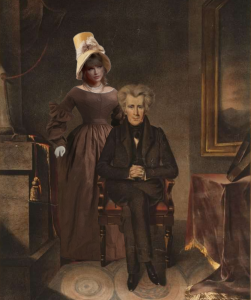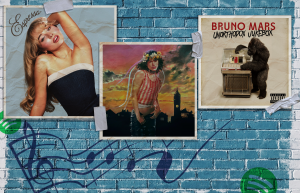“THE WHOLE WORLD IS WATCHING.”
The chant echoes throughout Aaron Sorkin’s new historical courtroom drama based on the legal proceedings following the protests at the 1968 Democratic National Convention in Chicago. This simple yet powerful statement inspires the central figures to use their even larger audience to do what they came to do: denounce the Vietnam War.
Writer/director Aaron Sorkin commented on the timeliness of his film, which was released through Netflix on Sept. 25, by saying, “The script didn’t change to mirror the times. The times changed to mirror the script.”
Key scenes and timelines were manipulated for dramatic effect. The murder of the Illinois chairman of the Black Panthers, Fred Hampton, while he was sleeping at home was accentuated to mirror the already-similar murder of Breonna Taylor.
The opening sequence starts with news footage of President Johnson among others announcing an increase in the draft. Alongside audio of Martin Luther King Jr. and Bobby Kennedy over images of their assassinations, the movie provides the right amount of historical context.
By having the Chicago protest leaders announce their intentions edited together in an expositional and comical effect, the viewers get a quick insight into the diverse motivations of the main characters along with handy name-cards.
Despite being titled “The Trial of the Chicago 7,” the film prominently features some actors more than others. The four most central characters are:
- Tom Hayden (Eddie Redmayne), an educated young liberal with belief in the system
- Abbie Hoffman (Sacha Baron Cohen), a court jester focused on cultural revolution
- Bobby Seale (Yahya Abdul-Mateen II), leader of the Black Panther Party who was lumped in with the others
- Bill Kuntsler, the beleaguered yet determined defense attorney played excellently by Mark Rylance.
The other defendants––Rennie Davis, David Dellinger, Lee Weiner and John Froines––are basically sidelined and have decreasing importance as the list goes on.
The conflict of ideals about social change between Hayden and Hoffman is an interesting development over the course of the film.
Another performance worth mentioning is Joseph Gordon-Levitt as the duty-bound yet sympathetic prosecution attorney Richard Schultz. Frank Lagella’s Judge Julius Hoffman also deserves an honorable mention, teetering on mustache-twirling, evil revelry in his dictatorial authority over the trial.
Admittedly, I have no idea if it’s historically accurate or not, but Jeremy Strong’s Jerry Rubin feels like he’s in a different movie from everyone else. He seems more suited to perform alongside Dr. Teeth and the Electric Mayhem as opposed to standing trial for crossing state lines to incite violence.
Several characters flash back to the police riots during court testimonies, which are very well done and, along with news footage, properly induce a sense of fear at the overwhelming militarism of the Chicago Police Department and the Illinois National Guard.
Sixteen men are credited in the cast before a single woman. It should be noted that the credits are mostly in order of appearance. However, Michael Keaton is given precedence over Kelvin Harrison Jr. and Caitlin Fitzgerald despite having less screen time. The first credited female performance is of an FBI agent infiltrating the protesters by pretending to date one of its male leaders. The other female characters are largely defined by their relationships to the central male figures.
Mrs. Dellinger is not given a first name and only has a couple of lines at the beginning and then basically just stares at the general direction of the defendants’ table the rest of the time. Bernadine is a receptionist for the male-dominated law practice. An unnamed protester is sexually assaulted by two fraternity men before they are stopped by a male main character.
At just over two hours, “The Trial of the Chicago 7” says what it wants to say, just verging on being too long. I would recommend this film to people interested in history, Aaron Sorkin, justice or any combination of the three.
4.5/5




